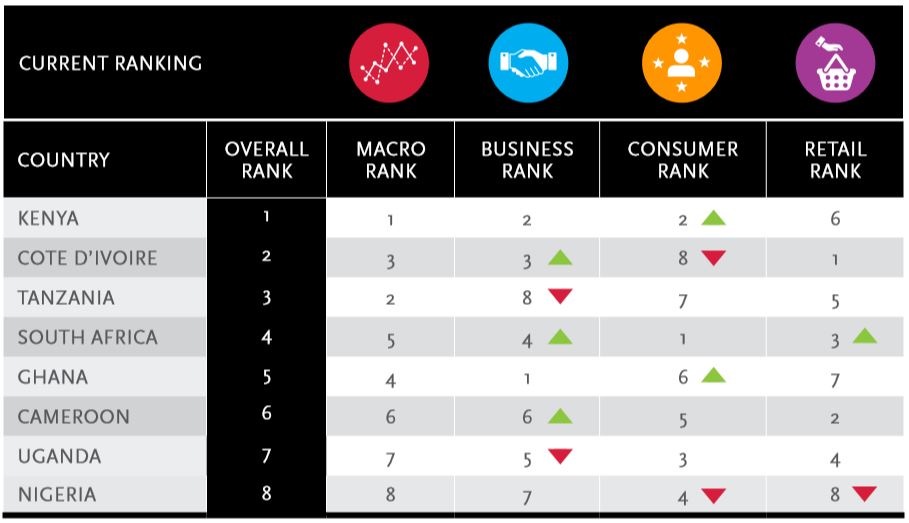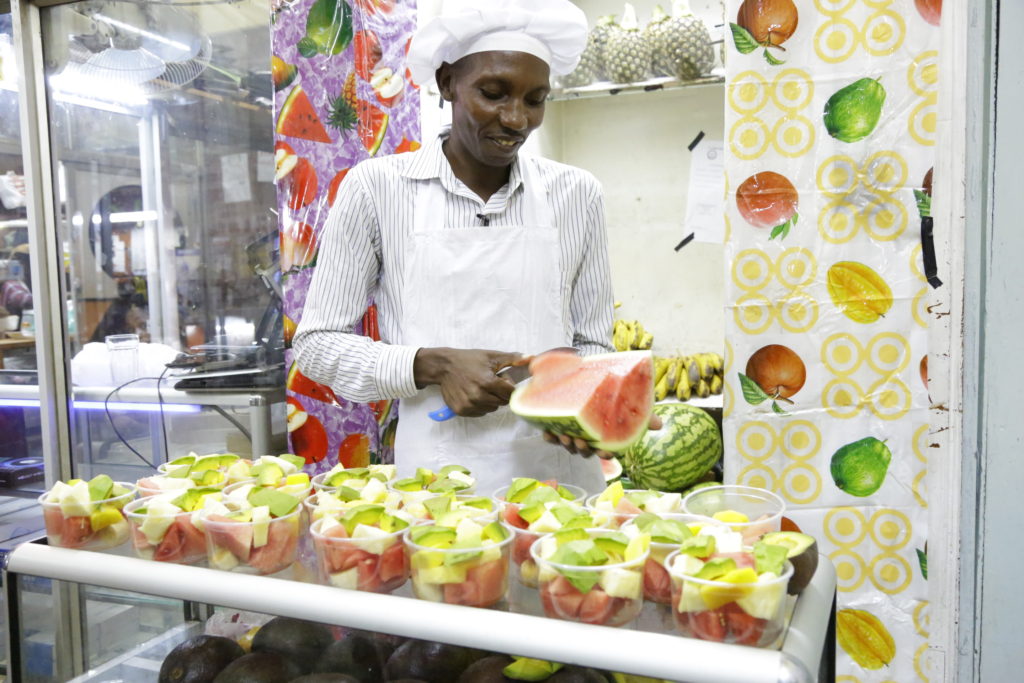NAIROBI, Kenya, May 18 – Kenya is the leading Africa Prospect Indicator for Micro Business, Consumer, and Retail markets.
This is according to Nielsen’s 4th Africa Prospects Indicator report which attributes Kenya’s performance to strong agricultural output, a resurgent tourism sector as well as increased FDI resulting in infrastructure projects that have spurred the diversified economy.
Kenya has been in the upper regions of the API ranking since inception beating Cote d’Ivoire, Tanzania, South Africa and Ghana respectively in the top five.
The report says East Africa’s most prominent economy is at the centre of growth prospects shift from West to East Africa.
However, Kenya’s retail sector is facing a mixed bag of fortunes.
“Truly informal small and medium-sized enterprises, as well as new start-ups, have been negatively impacted which has hindered growth and employment opportunities. However, elevated consumer purchasing power due to growth in per capita GDP, has resulted in a bigger base of more affluent consumers who can maintain retail resilience, creating an upbeat outlook for Kenya’s retail sector,” the report notes.
The World Bank forecasts Kenya’s 2016 GDP growth at 5.6 percent, a robust performance against the 1.5 percent average for Sub-Saharan Africa.
Cote d’Ivoire’s dropped to second position this quarter due to negative shifts in Consumer Prospects.
Despite strong Macro, Business and Retail prospects, Cote d’Ivoire’s Consumer prospects remain the biggest challenge.
Nielsen Head Emerging Markets Thought Leadership Ailsa Wingfield says businesses will need to adapt short-term and long-term country strategies to maintain relevance in fluctuating market cycles.
“Prospects for South Africa, relative to other Sub Saharan countries, have been reconsidered, as investors refocus on more established markets where it is usually easier to execute in known consumer and retail environments,” Wingfield points out.
Moreover, oil woes has seen Nigeria in eighth position particularly hard hit by lower oil prices compounded by low oil production resulting in a forex shortage, depreciation of the Naira and a curb on imports, creating a strangle hold on the economy which resulted in sky-rocketing inflation and tougher conditions for businesses and consumers alike.
Looking to the future, the report says new investors may see the cost of investment as more financially viable, given lower exchange rates, or an opportunity to develop products more suited to consumer wallets.
“The key to success will be the overriding need to focus on consumers, competitiveness, and execution,” the report highlights.




































